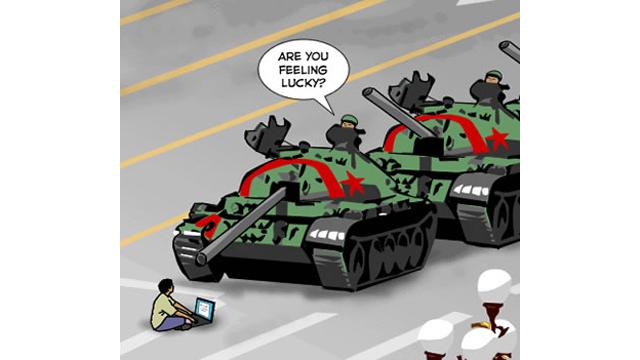
This may seem far-fetched or even laughable, but the United Nations is planning to take over the Internet.
As news events go, few appear duller at first glance than the scheduled meeting next month in Dubai of the 12th World Conference on International Telecommunications, where delegates will renegotiate the International Telecommunication Regulations.
But look closely, because hidden on the agenda are plans for a little-known U.N. agency that usually concerns itself with telephones and satellite orbits to boost its powers into cyberspace.
The International Telecommunications Union (ITU) was set up in 1865 to regulate the mechanical telegraph. Now countries like Russia, China and Saudi Arabia want to see it regulate the Internet and arm it with broad U.N.-backed powers.
These include ensuring the Internet is used for “rational purposes” and not to “interfere in the internal affairs” of other countries. One rule would allow governments to require other countries to monitor Internet traffic on their behalf. Even scarier are proposals for an Internet Tax.
Yet, if that wasn’t bad enough, the telecom giants – in the form of the European Telecommunications Network Operators’ Association – have sought ITU backing to increase costs for users that are likely to retard Internet growth in poorer countries.
“A new international battle is brewing, a battle that will determine the future of the Internet,” warns former Google vice president and so-called "father of the Internet," Vinton Cerf. “And if all of us - from Capitol Hill to corporate headquarters to Internet cafés in far-off villages - don’t pay attention to what is going on, users worldwide will be at risk of losing the open and free Internet that has brought so much to so many and can bring so much more.”
Among the proposals that have got Cerf and others so worried are plans for centralized control over every facet of online life, from cyber security, data privacy and even technical development, to allowing phone companies, many state-owned, to introduce pay-per-click for access.
There are also proposals to give governments the power to monitor net traffic and dictate how traffic is sent, and to cut off net access to violators. There are also new, broader definitions for spam that could see human rights campaigns blacklisted.
The Dubai meeting will take place behind closed doors and even the agenda is secret. The ITU does not publish any of the proposals put forward by any of the member states, but China is known to have proposed setting up a global register of Internet users linked to their IP addresses.
Unlike the U.N. Security Council, no country can veto ITU proceedings and a simple majority is needed to pass resolutions. As it stands, around 90 of the 193 member states are likely to back the setting up of a U.N. Internet bureaucracy, just seven short of a majority.
“Several authoritarian regimes reportedly would ban anonymity from the web, which would make it easier to find and arrest dissidents,” says Cerf. “Others have suggested moving the privately run system that manages domain names and Internet addresses to the United Nations.”
Under the present system, the Internet is regulated on a “multi-stakeholder” model, meaning different organizations share responsibility, from technical standards to assigning domain names. Many ITU members feel the United States has a disproportionate share of influence over the Internet, both ideologically and commercially, and some would like a share in the profits.
Several governments, many in Africa for instance, would like to see content providers – such as Facebook, YouTube and Google – taxed on a pay-per-click basis to fund Internet expansion in the poorer nations. But there are fears that this could mean less content available in the developing world when sites that refuse to pay are blocked.
Obviously, countries like the U.S. can – and regularly do – ignore the U.N. and there is no reason why any Western democracy needs sign up to a global Internet authority. But the nightmare won’t necessarily stop there. We might then face a great divide among Internet users, with one half of the planet carrying on as before and the other half obeying ITU regulations, leading to separate, tightly controlled, localized Internets, much as we already see in China and soon in Iran – and all under the United Nations’ umbrella of respectability.
“Most people would be shocked to know that something so major could be happening amongst such secrecy,” says Brendan Barber of the International Trade Union Confederation.
“An ITU regulatory regime would give governments the power to restrict the free use of the internet – something that would be a major blow to workers and human rights activists in countries with repressive regimes.
“The issues need to be debated in the light of day and in detail," he adds, "not rushed through without consultation by a shady coalition of oppressive regimes and vested corporate interests.”
See more work by the author, Conrad Jaeger website.
3 WAYS TO SHOW YOUR SUPPORT
- Log in to post comments















